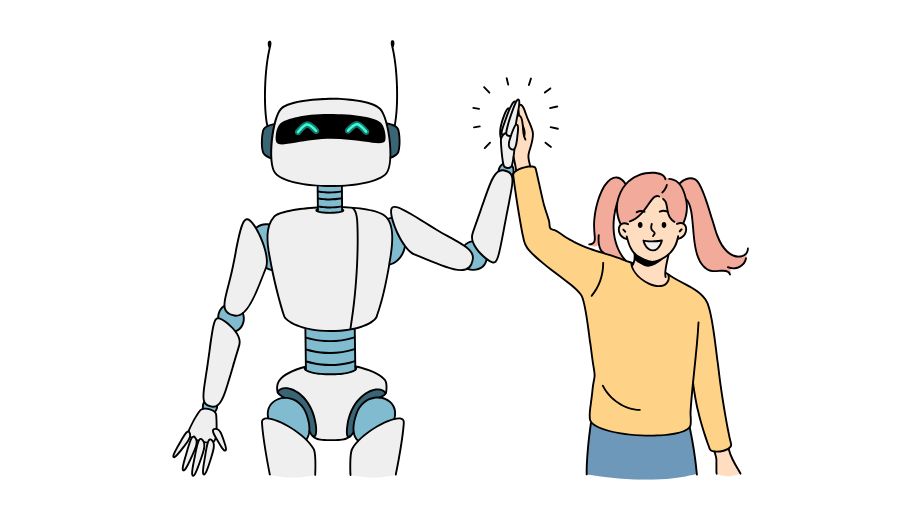Artificial Intelligence (AI) is increasingly being integrated in education to support and encourage student growth. AI has transformed education by enhancing the learning experience through personalized support, adaptive technologies, and data-driven insights. From virtual tutors who can provide students with instant feedback to tailored lesson plans to meet individual needs, AI is making learning more accessible, efficient, and engaging for students. Below is a discussion of how AI has contributed to fostering greater excitement and enthusiasm for knowledge.
Personalized Student Learning
Students learn in different ways. Some may thrive in a traditional classroom setting, while others struggle to keep up with their peers. With AI, content is tailored to the students’ needs and unique learning styles, making it easier for students to comprehend lessons independently and at their own pace. Khan Academy provides personalized learning paths for students in areas such as math, science, history, and more. Students can track their progress, revisit lessons, and get suggestions on what to study next, making it ideal for self-paced learning.
AI learning platforms continuously analyze a student’s performance and response times, identifying which subjects require additional support and what areas the student is close to mastering. This can prevent students from becoming overwhelmed by difficult work or bored due to easy material. For example, platforms like DreamBox help students with math and reading by adjusting the difficulty of lessons based on the child’s progress. Other programs, like Knewton, use a teaching style that asks questions designed to determine what the student comprehended during a lesson and provides corrective feedback to remedy any misunderstandings.
Enhanced Accessibility
Students with learning, speech, hearing, visual, and language disabilities have utilized AI to socialize with their classmates, allowing them to keep up with their peers. AI can convert speech into text for audibly impaired students, convert written material into audible books for those with visual impairments, and organize a student’s scattered thoughts into a comprehensive outline.
Even students who do not have a disability but are struggling with their academics can reap the benefits of AI technology in school. For example, Iowa requires students who do not read proficiently for their grade level to receive an individualized reading plan. Iowa’s Department of Education invested three million dollars into a personalized AI tutoring program that uses digital avatars to help students with reading difficulties.
Personalized Teacher Support
Dora Demszky, an assistant professor of Education at Stanford University, has found that the real-time feedback and suggestions AI generates for teachers provide valuable resources to enhance teaching methodologies. AI can produce lesson reports that analyze classroom patterns, informing teachers how often students participate in class and what subjects trigger more student engagement. Teachers are also able to implement AI by using inclusive assessments. Instead of the traditional paper and pencil tests, AI allows for varied assessment formats, such as verbal answers.
MagicSchool.ai is an AI program teachers can use to personalize tasks for students based on their learning level, as well as create rubrics for such assignments. MagicSchool.ai recommends an 80/20 approach when designing lesson plans. MagicSchool.ai does most of the initial work, then teachers step in and take over the rest. Teachers tell AI the specific state standards the plan must comply with, what educational objectives need to be met, and what topics need to be discussed to ensure the lesson plan is relevant to students and the curriculum. After the lesson plan is produced, teachers check for bias, accuracy, and contextualize the lesson plan appropriately.
The innovative integration of AI empowers teachers to create more dynamic, and data-driven learning environments that cater to a variety of student needs.

